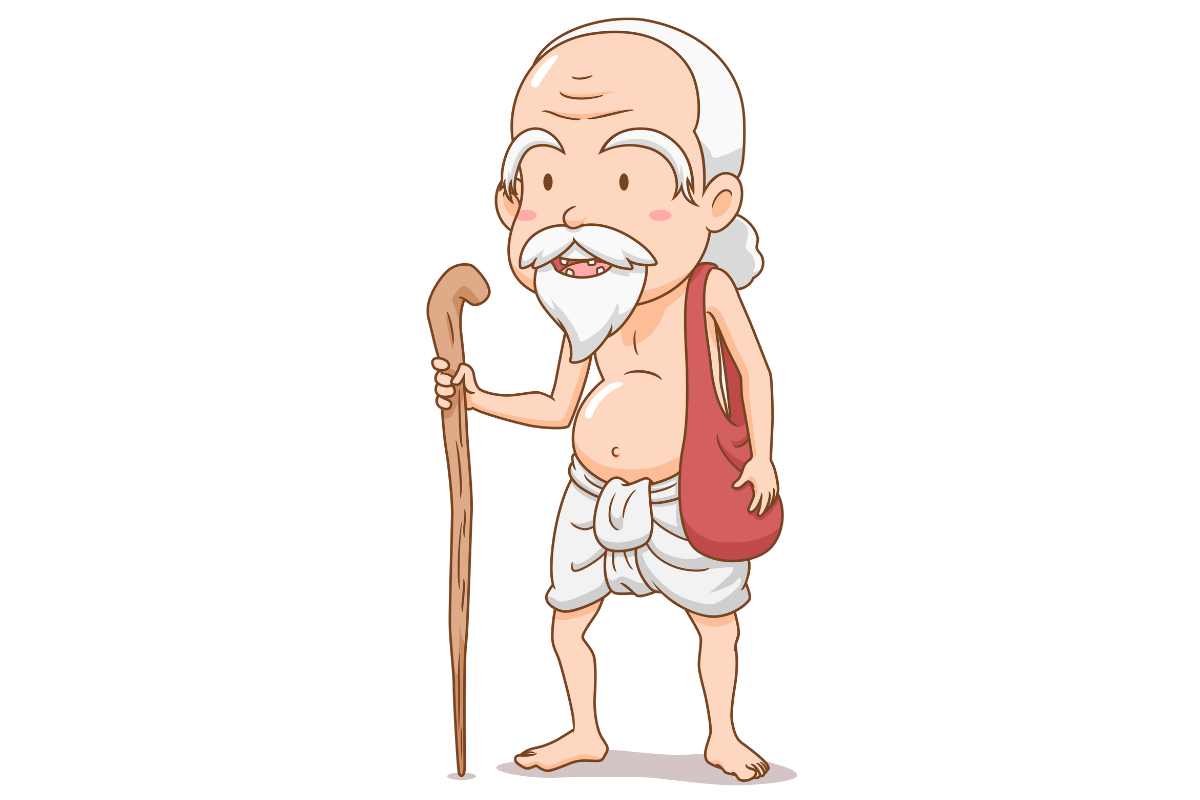The Man and the Crooks: Once upon a time, there was a man who had a little goat. A kind merchant gave the goat to him as a present. The man was happily carrying the goat on his shoulders, excited to take it home.

As the man walked along the road, three mischievous crooks noticed him. They wanted to play a trick on him. The first crook approached the man and asked, “Hey, why are you carrying a dog on your shoulders?” The man was surprised and a bit upset. He quickly said, “No, no! This is not a dog, it’s my goat!” and continued on his way.
A little while later, the second crook came up to the man and said, “Why are you carrying a dead calf?” The man was getting annoyed but decided not to argue. He replied, “It’s not a dead calf, it’s my lively goat!” and kept walking.
Now, the third crook saw his chance. He went to the man and asked, “Why are you carrying a donkey on your shoulders?” This made the man worried. He thought something might be wrong with his goat, as people were seeing it differently. Feeling scared, he decided to leave the goat and hurried away.

The three crooks were overjoyed with their clever plan. They happily took the goat with them, leaving the man without his gift. The mischievous trio had a good laugh, thinking they were very smart. And so, the man learned to be careful of tricky strangers and never to believe everything he heard.
Moral: The story teaches us to be wise and not easily fooled by others. It’s important to trust our judgment and not let the words of mischievous people make us doubt ourselves.
Thank You for Reading the Story from here ☺ if you really wanna get updated, You could also join us on Pinterest by clicking the link below.
| Click Here | |
| Homepage | Click Here |
FAQs on The Man and the Crooks
Who are some famous short story authors?
Some famous short story authors include Edgar Allan Poe, O. Henry, Anton Chekhov, Flannery O’Connor, and Alice Munro.
How long is a short story?
Short stories can vary in length, but they are generally considered to be between 5000 and 1000 words.








